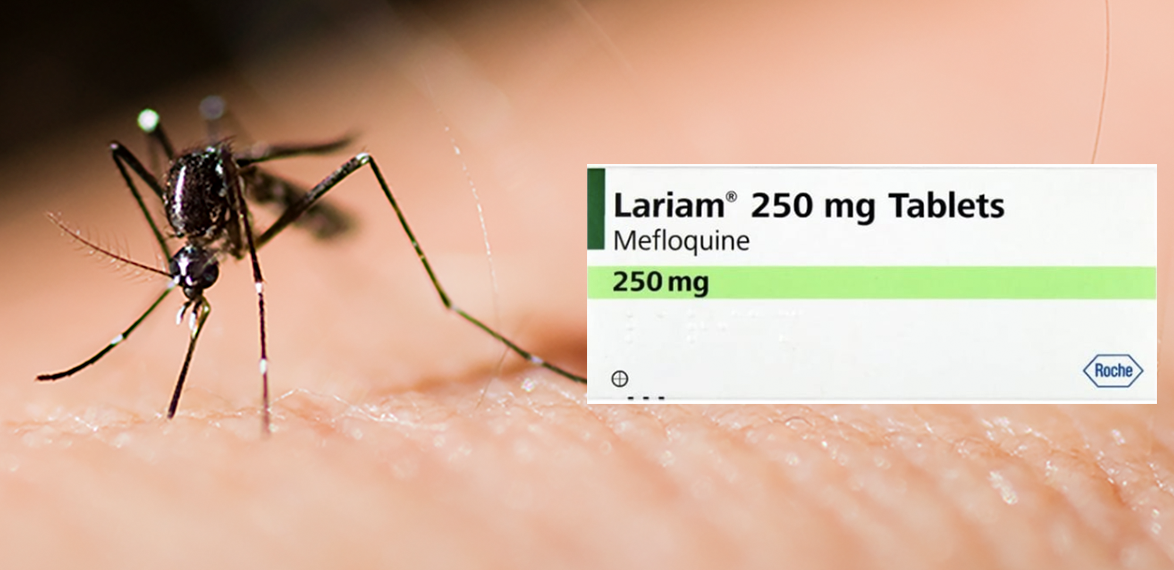Today’s News
Lawsuit set to be launched against the government regarding Mefloquine
Hundreds of veterans are set to launch a lawsuit against the government for being prescribed Mefloquine, an antimalarial drug with extreme side effects that haunt these former soldiers to this day.
“We’re going to try our hardest to get some justice for these guys,” said Paul Miller, one of the lawyers representing veterans in the proposed lawsuit.
In just six weeks Miller and his colleagues have been contacted by nearly 375 veterans who believe that Mefloquine has had a debilitating effect in their lives. The lawyers believe hundreds more could be eligible for the lawsuit.
“There’s a whole group of people who need help and are seriously injured. So, (we thought) let’s jump on this,” noted Miller.
Mefloquine was developed in the 1970s by the US Army, in conjunction with Hoffman La Roche Inc, at the Walter Reed Army Institute. Although the drug has been approved by many countries, Hoffman La Roche was still looking to have the drug approved in Canada in the 1980s and was, therefore, conducting clinical trials. The Canadian military decided to take part in these clinical trials and troops sent to Somalia in the early 1990s.
According to Miller, however, the military did not follow the strict protocol of the clinical trial which outlined that anyone experiencing side effects from the medicine should discontinue it immediately. Miller and the veterans also argue that the soldiers were not properly informed of the side effects of Mefloquine.
The once-a-week tabled works by “readily penetrate and accumulate inside blood cells.”
“Unfortunately, this same property that lends mefloquine its long-lasting effectiveness leads to mefloquine being neurotoxic, meaning that instead of remaining in the blood where it acts to kill the malaria parasite, it can enter into the brain and kill brain cells instead,” said Dr. Remington Nevin, executive director of The Quinism Foundation, a non-profit dedicated to supporting research and education on the effects of mefloquine and related drugs.
Some of the common early side effects of the medication suffered by the soldiers include abnormal dreams, nightmares, and insomnia and are all warning signs of neuropsychiatric quinism, poisoning of the brain by Mefloquine.
Recent research indicates that nearly one in seven exposed to the drug experience abnormal dreams and nightmares and one in five complain of nightmares three years after exposure.
Eventually, Mefloquine was licensed in Canada, and the military continued the administer the drug to troops without, says Miller, disclosing side effects to the military personnel.
Mefloquine was administered to Canadian troops until only a few years ago.
“For years, Canadian soldiers were told to ignore such symptoms, but left unchecked, mefloquine poisoning can cause permanent injury to the brain and brainstem, resulting in lasting symptoms including tinnitus, dizziness, vertigo, paresthesias, visual disturbances, nightmares, insomnia, sleep apnea, anxiety, agoraphobia, paranoia, cognitive dysfunction, depression, personality change, and suicidal thoughts,” explained Dr. Nevin.
Dr. Nevin adds, the drug continues to affect many soldiers to this day, decades later. In fact, many soldiers have even been diagnosed with PTSD when they could, in fact, be suffering from Mefloquine poisoning, since the side effects mimic symptoms of the mental disorder.
Even authors at the U.S.Army’s Walter Reed Army Institute, where the drug was developed, noted that “mefloquine toxicity can persist for several years after exposure has been discontinued, with little to no abatement in symptoms over time. Furthermore, given the overlapping symptoms of post-traumatic stress disorder and mefloquine toxicity, it can be challenging to distinguish between the two diagnoses.”
Dr. Nevin and his institution, in partnership with LifeMark Health Group, created WRMI-2 a screening instrument available to assist in identifying veterans who may have had symptomatic exposure. He encourages physicians treating veterans with PTSD to also screen for exposure to mefloquine and subsequent poisoning.
“This can be as simple as asking the veteran whether they took mefloquine, and if so, whether they experienced certain symptoms during use of the drug. If the veteran screens positive for symptomatic mefloquine exposure, the physician or health care provider should retain an index of suspicion that any chronic neurologic or psychiatric symptoms could represent effects of mefloquine poisoning,” commented Nevin.
According to CAF spokesperson Maj. Doug Keirstead, the CAF has not received a notice of a proposed class action.
“We take the health and well-being of Canadian Armed Forces members very seriously. In 2017, the Department of National Defence and the Canadian Armed Forces announced the release of findings from the Surgeon General’s review on the operational use of mefloquine. No evidence was found that would suggest potential long-term adverse effects of mefloquine on human health.
“However, the Canadian Armed Forces will continue to monitor the scientific evidence related to mefloquine, and any future relevant scientific research will be thoroughly reviewed,” said Maj. Keirstead.
The first set of cases will start rolling out in the coming weeks and hopes more veterans will also seek justice.
“We’re hoping as many veterans who are out there contact us and retain us because there is great power in numbers,” said Miller.
Considering what hundreds of veterans have endured, Miller hopes to give these former soldiers some compensation in a case, argues Miller, that is largely about social justice.
“We just want to send a message that this will not, and cannot, be tolerated by our veterans and our people. We expect more,” said Miller.
Any veterans who may have been impacted by Mefloquine can reach out to Paul Miller at [email protected].










